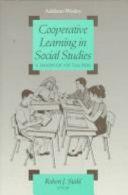A Handbook
This book is about a person-centered approach to counseling and psychotherapy as developed by the psychologist Carl Rogers (1902-1987) and his colleagues. This book is also a handbook on the person-centered approach and the Rogerian tradition for use in academic and non-academic settings alike. In brief, Chapter 1 is a previously unpublished work, entitled "A Person-Centered Approach and the Structure of Scientific Revolutions." Versions of Chapters 2 thru 4 have been previously published in the Journal of Humanistic Psychology. Chapter 2 is entitled "A Person-Centered Approach to Multicultural Counseling Competence." Chapter 3 is entitled "A Person-Centered Approach to the Treatment of Borderline Personality Disorder." And Chapter 4 is entitled "A Person-Centered Approach to the Treatment of Combat Veterans with Posttraumatic Stress Disorder." Each chapter is briefly summarized below. Chapter 1 examines the trend of scientific inquiry in psychotherapy research, specifically focusing on events and changes that took place beginning in the 1970s and are argued to have substantially influenced the direction of psychotherapy research in the following decades. In particular, these changes are suggested to have been guided by the choices made by a small but influential group of behavior and psychoanalytic-oriented researchers, and led by the eminent psychologists Allen Bergin and Hans Strupp. The choices made by these researchers arguably led to changes in the scientific methods used to investigate the effectiveness of psychotherapeutic treatments and, as will be shown in this chapter, led to the decline and disappearance of Carl Rogers's person-centered approach. Therefore, the Rogerian traditions of theory, research, and empirically-validated practice did not decline as a result of unfavorable findings or due to decisions made by an objective tribunal, so to speak. Rather, this chapter suggests that through a method of allegiance-guided scientific inquiry, the Rogerian tradition was systematically dismantled by a group of social scientists that held considerable professional interests to do so. As a result, history suggests that these scientists benefited greatly. This chapter provides substantial scholarly and empirical evidence to support the above claims. Chapter 2 examines current and historical trends in psychotherapy research and practice with racial/ethnic minority populations. Using psychotherapy evidence from both the latter half of the 20th century and the initial decades of the 21st century, cultural adaptations to previously hypothesized person-centered therapy mechanisms of change are proposed. Chapter 3 addresses psychotherapy with a person described as possessing a borderline personality disorder (BPD). In particular, a selection of mainstream approaches is reviewed to examine unique and universal aspects of current thinking about this treatment population. Following this review, an expanded analysis of person-centered therapy is offered, examining current research evidence and the mechanisms of change hypothesized to occur in the person-centered treatment of BPD. Chapter 4 examines posttraumatic stress disorder through the lens of military combat trauma that results in a breakdown of a combat veteran's sense of self and the world. In the effective treatment of combat-related posttraumatic stress disorder, a therapist must help the veteran reorganize the self-structure that has become incongruent with his or her precombat-trauma self following his or her return home from war. For the therapist to facilitate a veteran's becoming whole, he or she must be genuinely congruent in the relationship.
A Handbook Adam Quinn. Furthermore, i.i.d. events in review methodology
would increase the likelihood that all relevant literature had received an equal
probability of review (i.e., equal and objective consideration). The well-known ...






